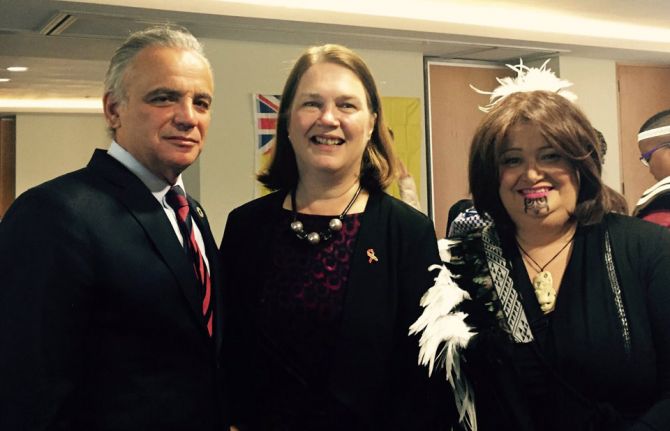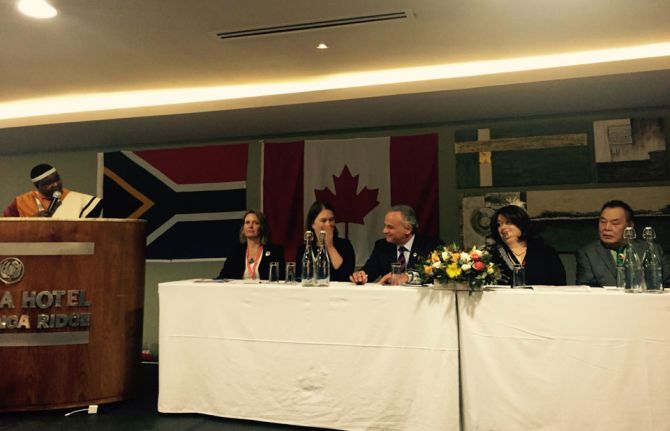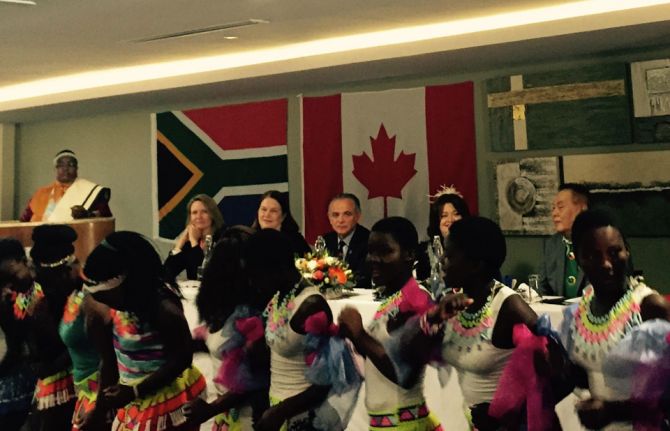



Update
International indigenous preconference meeting on HIV calls for greater visibility of indigenous voices
16 July 2016
16 July 2016 16 July 2016More than 150 representatives of indigenous people and allies are coming together on 16 and 17 July in Durban, South Africa, for the International Indigenous Pre-Conference on HIV & AIDS, which was organized by the International Indigenous Working Group on HIV & AIDS.
A preconference meeting to the 21st International AIDS Conference, the event is a forum to share promising practices, share lessons learned and build relationships across continents, cultures, traditions and languages. It provides a place where indigenous people can overcome challenges and chart the growth of an indigenous-led HIV response in Africa.
The programme includes keynote addresses reflecting a broad spectrum of issues and expertise and abstract-driven sessions under several tracks: traditional medicine, care, treatment, support and prevention; indigenous identities, world views and HIV; the meaningful engagement of women and girls; and leadership, advocacy and policy for addressing the social and structural drivers of HIV.
Quotes
“The Sustainable Development Goals are about tackling exclusion. Indigenous communities need to be at the centre of efforts to end the AIDS epidemic. The 2016 United Nations Political Declaration on Ending AIDS calls for eliminating the barriers that indigenous people encounter, including stigma and discrimination in health-care sessions, and for increased and sustained investment in community-led service delivery and advocacy. The time to act is now.”
“Indigenous people continue to be disproportionately affected by HIV. There will be no ending AIDS without dignity, social justice and human rights of indigenous people, and without their leadership. In our Canadian health-care system we must have zero tolerance for discrimination that some indigenous people continue to face when seeking health care. We are here to share wise practices that have worked around the word and to call for respect, dignity and compassion in provision of health services.”
“Partners must include indigenous peoples in the planning of culturally sensitive programmes and services.”
“We need to keep leaders accountable for their commitments to address HIV and indigenous people, but not with rhetoric, rather with real financial, epidemiological, and global collaborations allowing us to be part of the solution.”



